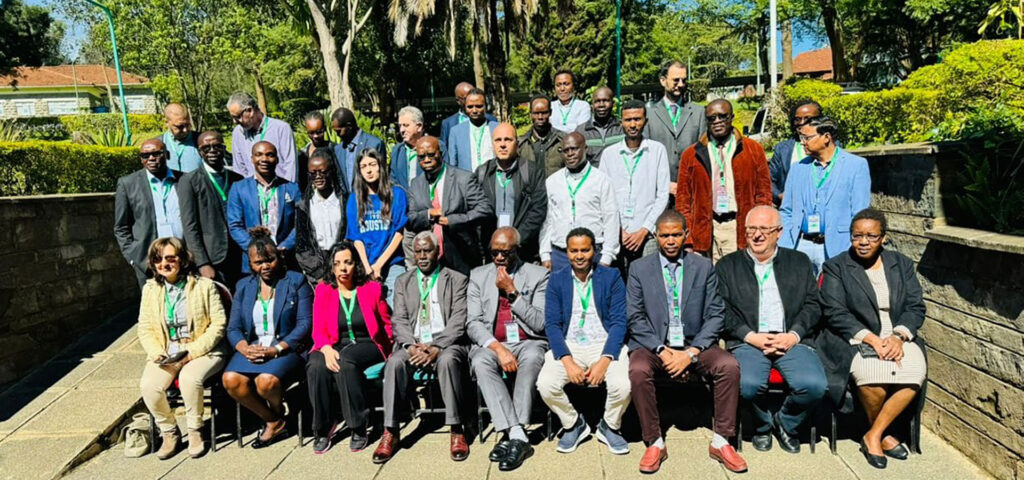Egerton University, the lead applicant, for the project title “Building Capacity in Plant Breeding and Biotechnology Education and Research through partnership program in Africa, Middle East and Europe for Agricultural transformation” hosted the kick-off meeting in its campus in Kenya during May 7th and 8th, 2024.
Ten partners from six countries, from Africa, Palestine and Europe met in Egerton University in Kenya to kick start the BREEDTECH project co-founded by the Erasmus Plus Programme of the European Commission. BREEDTECH project aims at building the capacity in plant breeding and biotechnology education and research in Africa, the Middle East, and Europe and to involve African and Palestinian higher education institutions in the research movement related to plant breeding and biotechnology in Europe and to encourage researchers and academics to take an interest in the concept, domains, tools, and digital technology of plant breeding and biotechnology.
Egerton University’s director research, Prof. George Ogendi, welcomed all partners and congratulated the team for winning research funds. He highlighted the project’s multidisciplinary nature, its value to Africa and its potential to address global challenges. The project also provides opportunities for young scholars and mentorship. Egerton University’s Deputy Vice Chancellor Academics Research and Extension Prof. Benard O. Aduda emphasized the project’s relevance to the university’s activities and the importance of networking and collaboration. Laikipia University’s Vice Chancellor Prof. Joseph K. Rotich congratulated the BREEDTECH team, highlighting the project’s relevance to global issues like hunger and food security. He encouraged collaboration and application for more research funds.
During the two days meeting, partners jumpstarted project implementation planning the activities, defining roles, and establishing a collaborative framework. They engaged in detailed presentations and discussions on various work packages, including capacity building, curriculum development, and impact dissemination. Key milestones and deliverables were outlined, ensuring a clear path forward. This meeting set a strong foundation for the project’s success, marking the beginning of a transformative initiative in plant breeding and biotechnology education and research.


